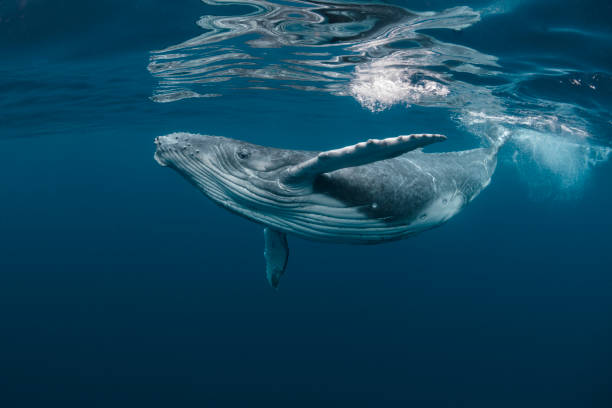Unfolding the Enigma of Whale Communication
In the vast expanse of the world's oceans, a fascinating and complex system of communication exists among the largest creatures on our planet - whales. This article delves into the intricate language of these marine giants, discussing the historical context, recent developments, and the impact of human activities on their communication patterns.

A Historical Perspective: Whales and Their Sonic Language
Whales, the ocean’s magnificent behemoths, have always been known for their unique communication. Early seafarers and whalers noted their strange, song-like sounds. However, it was not until the advent of underwater recording technology in the 20th century that we began to understand the complexity of whale communication. These marine mammals use a variety of vocalizations, including clicks, whistles, and pulsed calls, to express themselves.
Current Research: Echoes from the Depth
Modern science has allowed us to delve deeper into the world of whale communication. Recent research shows that different species and even different pods within the same species have unique “dialects.” These dialects are a complex blend of frequencies, pitches, and rhythm patterns. Scientists are now exploring the possibility that whales, much like humans, have regional accents and languages.
The Threat of Noise Pollution: An Ocean in Turmoil
While our understanding of whale communication has advanced, so has our recognition of the threats posed by human activities. Noise pollution, primarily from shipping and underwater drilling, interferes with whale communication, leading to stress, disorientation, and in worst cases, stranding or death.
The Cost of Disruption: A Market Perspective
The impact of noise pollution on whales can also have significant economic implications. Ecotourism, especially whale watching, is a billion-dollar industry. Disruption of whale communication and consequential decline in their population can drastically affect this industry. Moreover, whales play a critical role in marine ecosystems, contributing to the health of commercial fisheries by promoting plankton growth.
Looking Ahead: Protecting Our Marine Giants
Understanding and preserving whale communication is not just about curiosity or conservation. It is a crucial aspect of maintaining the health of our oceans and, by extension, our planet. It is hoped that increased awareness and technological advancements will lead to more effective noise regulation measures, ensuring that the song of the whales continues to echo through the ocean depths.
Whale communication remains a fascinating topic, inviting us to delve deeper into the mysteries of these sentinel species. As we continue to discover their complex language, we are reminded of our responsibility to safeguard their existence and the health of our oceans.






